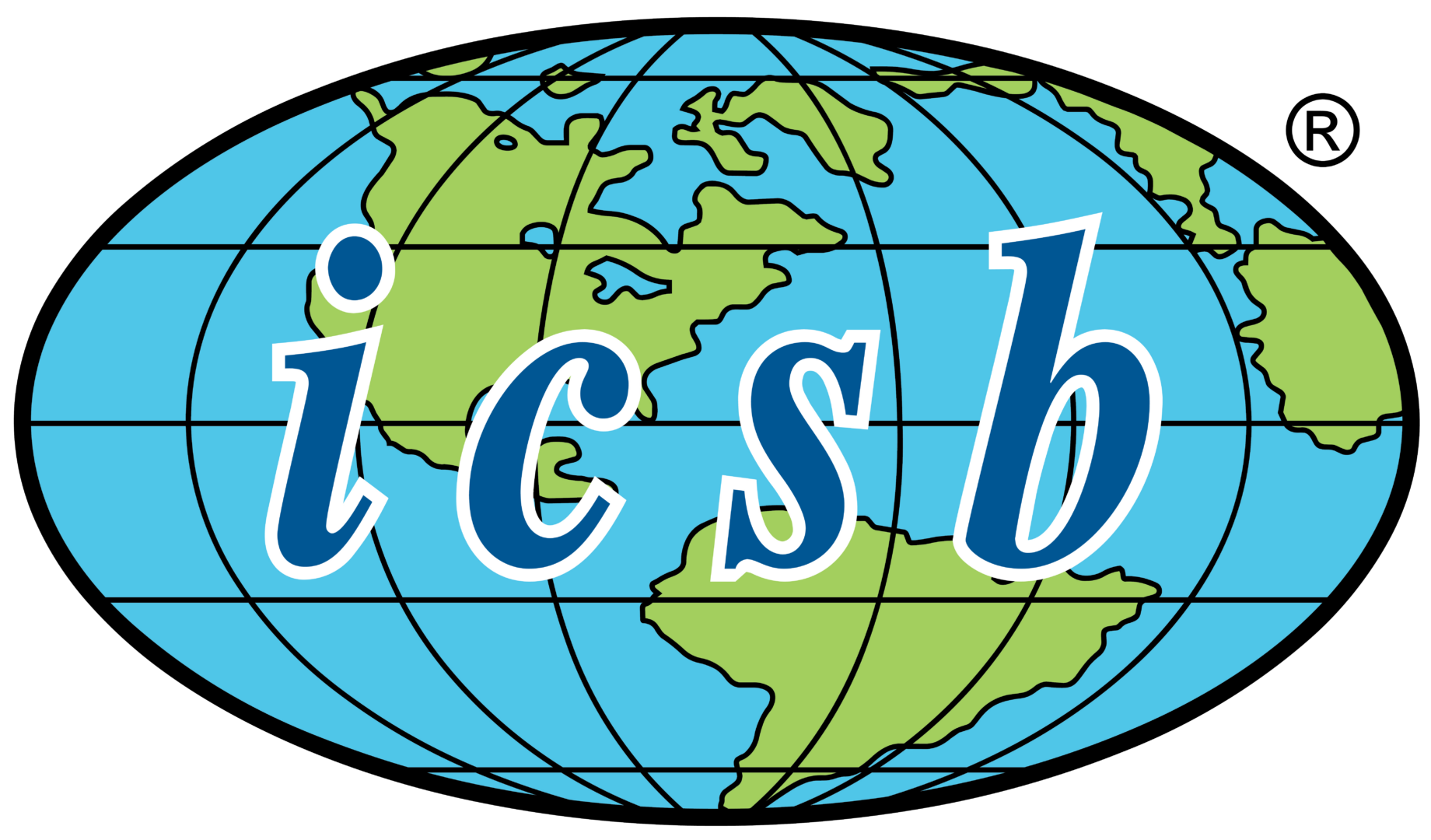About Us
Welcome to International Canine Semen Bank Main Office - Oregon
International Canine Semen Bank (ICSB) was founded by Professor Carrol C. Platz, Jr in 1971. Our semen freezing technologies, procedures and media are based on over 50 years of research, development and operation, which have been funded by AKC, NGA, and the Ralston-Purina, and are based on statistical evidence and our in-depth research, which began in 1971 by our founder, Professor Carrol Platz.
Over many decades of research at the University of Oregon Medical School, Baylor College of Medicine, Texas A&M University and continuing in the ICSB laboratory, Professor Platz has developed the advanced technology and media for canine semen freezing. Professor Platz further researched critical data to determine the minimum number of sperm cells necessary to produce conception in the female canine along with optimal timing determination for conception by artificial insemination with both non-surgical and surgical procedures.
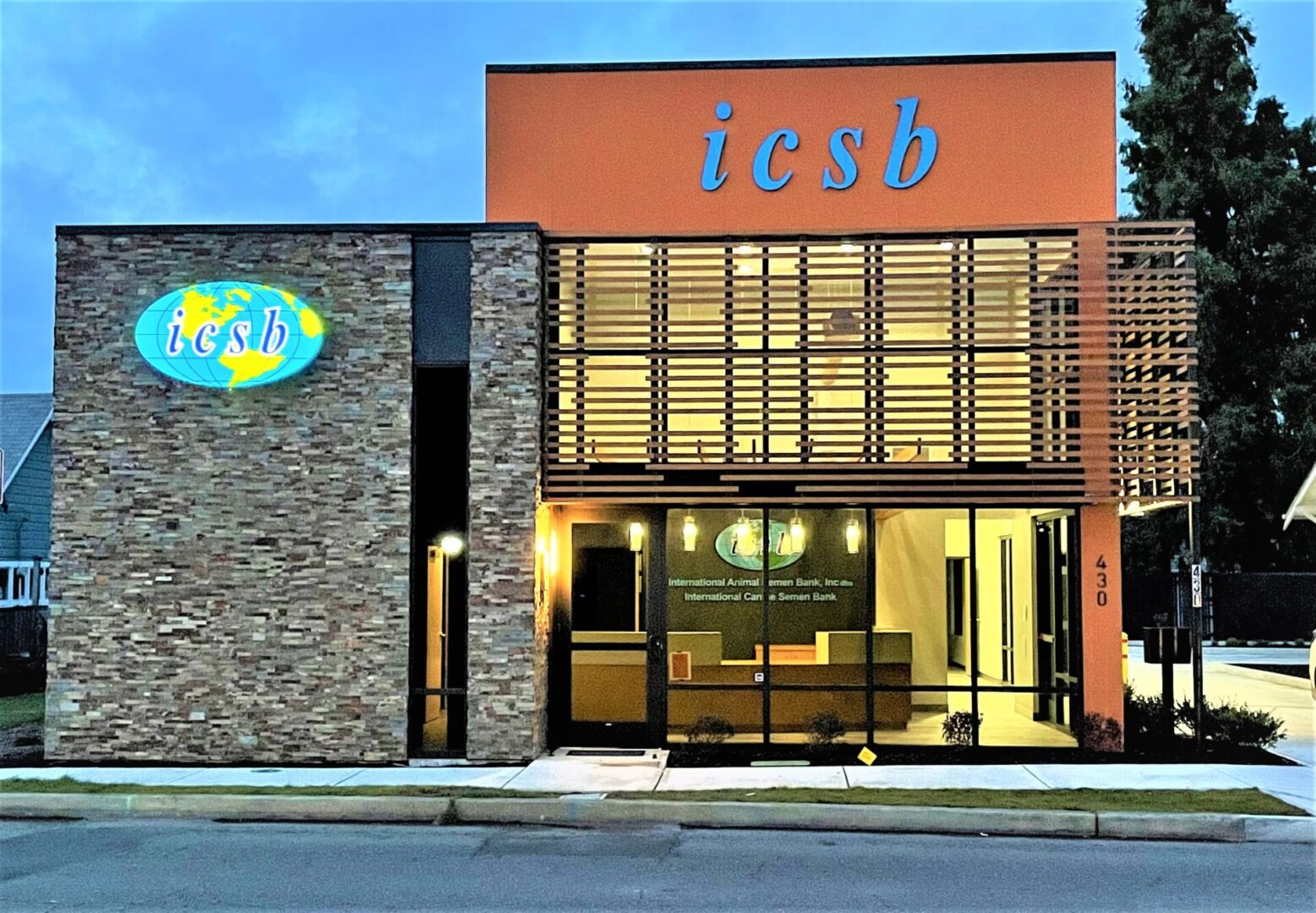
ICSB and its associates were the first in producing litters from frozen semen registered by AKC, American Field Dog Association, and National Greyhound Association. ICSB also assisted in developing the guidelines and standards used by these organizations for registering litters produced from frozen semen.
There have been numerous litters produced from semen that was frozen and stored by ICSB in liquid nitrogen for decades using ICSB technology, media, and inseminated by both ICSB and non-ICSB facilities. In 2010, a litter of four Beagle puppies was produced from frozen semen stored by ICSB for just under 38 years. In 2018, a litter of six Great Dane puppies was produced from 36-year-old frozen semen and a litter of fifteen Dalmatian puppies was produced from 20-year-old frozen semen. In 2020, a litter of four Irish Wolfhound puppies was produced from 29-year-old frozen semen. In 2024, a litter of 11 Bouvier des Flandres puppies were produced from 35-year-old frozen semen. These are just a few of our numerous successful litters.
This shows the viability of our canine semen freezing technology, as well as our long-term commitment to our clients and their studs’ semen stored at our facility. ICSB also provides the dog breeder with the most successful service available using fresh-collected, fresh-chilled, and frozen canine semen in artificial insemination.
ICSB has had the good fortune to have trained some of the most knowledgeable and professional veterinarians and breeders involved in canine reproduction. We are proud of this and continue to strive for excellence through ongoing training and continued study of the crucial components of the ICSB business.
ICSB is committed to upholding exemplary standards in order to deliver exceptional care and services, while also maintaining our longstanding rapport with our clients. Our sophisticated management team and skilled technicians are an integral part of ICSB and are here to assist our clients with any aspect of our services.
To better serve and support our clients, we have added the new services of transcervical insemination, progesterone testing and pregnancy ultrasound in 2023.
As evident from our extensive history of over 50 years, we take pride in being a highly accomplished and esteemed organization. We are proud to have opened dozens of ICSB Centers in the US and overseas. ICSB is represented in multiple countries and still growing.
A Message From The Founder of ICSB, Professor Carrol Platz, in 2014:
"One of my main concerns over the more than 40 years I have spent in the canine reproduction business is, how to continue the program, with the same intense loyalty to our clients that has helped make ICSB what it is today with over 50 centers currently in the US and overseas, we continue to expand ICSB as time permits. After all the years it has taken to build this program, I hope to see ICSB continue for the at least next 40 years with as much energy and commitment as it has seen in its first 40 years.
It is with pride and complete confidence that I can now rely on my son John and my daughter in-law Tong to take the reins of the ICSB program. For the past 20 years, John has assumed the client and office management, overseeing shipping, receiving, tracking inventory of over 200,000 semen samples stored to date.
John has been apprenticing at my side for the last 20 years learning semen collection using the techniques of manual stimulation, epididymal sperm harvest, and electroejaculation in the canine and other mammal species. He has become an expert at semen analysis, insemination timing, and missed conception troubleshooting. John has the knowledge and skills to continue the ICSB tradition far into the future.
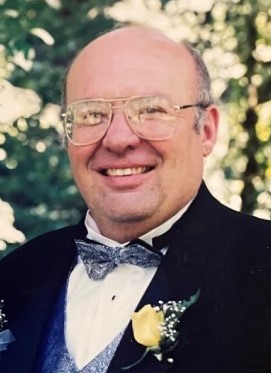
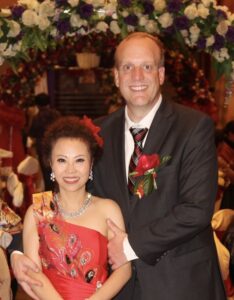
John’s wife, Tong has been managing businesses domestically and internationally for over 20 years. She has been assisting with ICSB media production with me since 2013 and has been independently in charge of the production since 2014. Together, John and Tong make a strong and reputable team moving ICSB forward.
I feel very fortunate that John and Tong have joined me as the future of our program. And confident that they both will offer our clients a continuing program based on our past efforts, our quality service, and our industry-leading conception results. John and Tong are the second chapter of ICSB. They will do the best to offer all our clients the most up-to-date procedures and advances in canine reproduction for the next generations to come. I know our clients will enjoy working with John and Tong. And that the same loyalty, hard work, service, and commitment will continue on at ICSB.”
About the Founder
Professor Carol C. Platz, Jr. graduated from the University of Oregon in 1967. He began his career researching mammalian eye lens proteins and eye cataract research at the Providence Hospital Biochemistry Research department.
In 1969, Prof. Platz later joined the Department of Biochemistry at the University of Oregon Medical School, now Oregon Health & Science University (OHSU), where he worked with DNA and RNA biochemistry research in domestic animals.
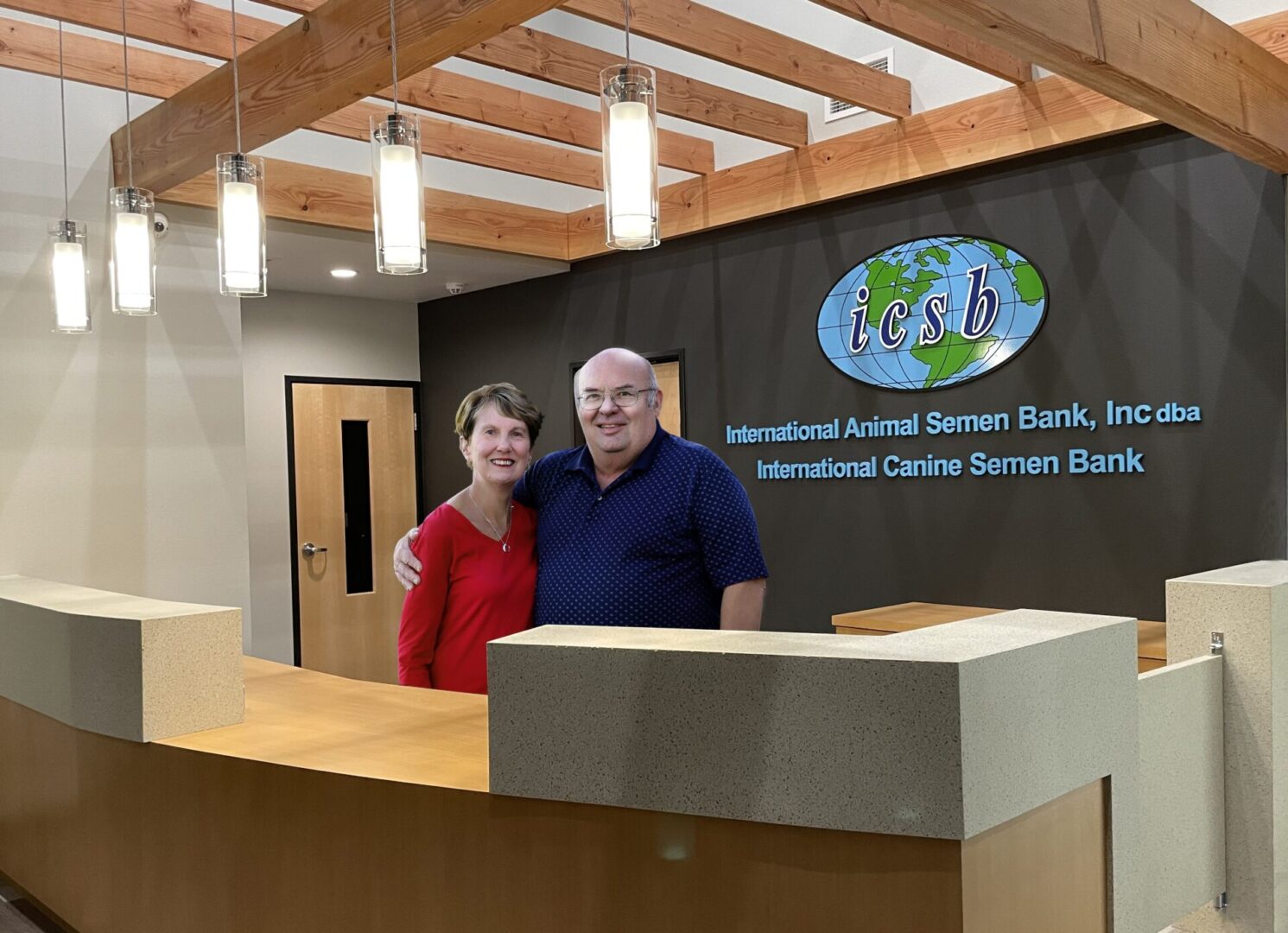
Work in Canine Semen Cryopreservation
After his tenure at the biochemistry department, in 1971 Prof. Platz moved to the Department of Surgery at OHSU to begin his studies in animal reproduction specifically in the cryopreservation of canine semen. This research was first funded by the American Kennel Club and later by the National Greyhound Association and the Ralston Purina Co.
His work led to many important published techniques and media for improving the quantity and quality of specimens. The critical data obtained determined the minimum number of sperm cells needed to produce conception in the bitch. In using frozen semen, he found that there were no detectable increases in birth defects through five generations of progeny.
In 1976, Prof. Platz found that the semen freezing method he developed, which is used by ICSB to this day, had an extremely high success rate. He reported conception rates of 92% using non-surgical inseminations in the canine (12 conceptions in the 13 bitches bred).
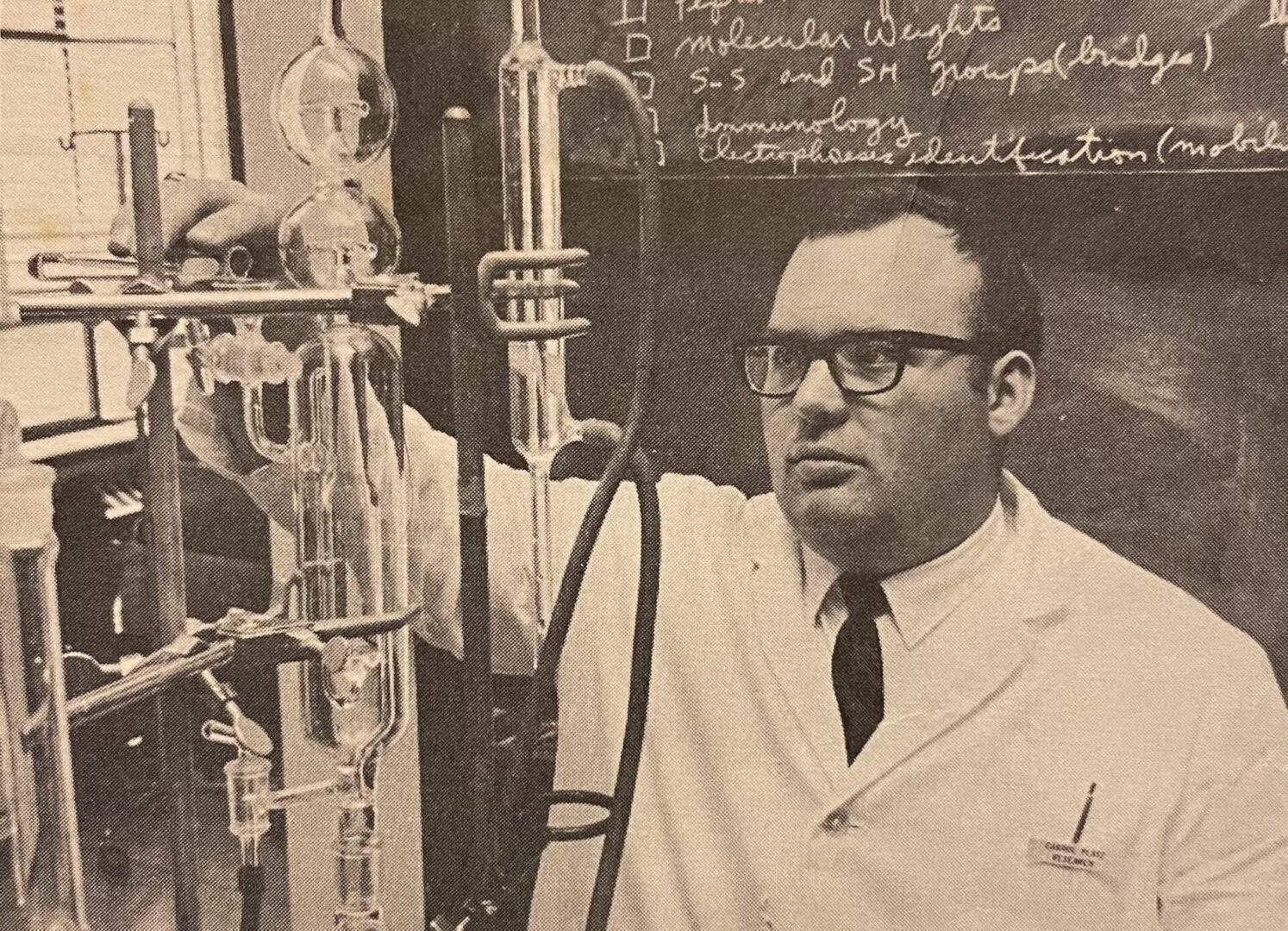
Other Successes in the Field
In addition to his work in canine cryopreservation, Prof. Platz also developed electrical ejaculation equipment used for the collection of semen from domestic cats. Funded by Ralston Purina Co., this research led to him working in the preservation of rare and endangered species using his methods.
Academic Career
Prof. Platz later joined the faculty at Baylor College of Medicine at the Texas Medical Center in 1971, where he researched the reproductive physiology of a wide range of species. He also stored genetic material from animal models of human disease for a program funded in part by the National Institutes of Health in Bethesda, Maryland.
By 1980, Prof. Platz accepted a position at Texas A&M University, Department of Veterinary Physiology and Pharmacology in College Station, Texas where he continued his research. Throughout his career at various academic organizations, he has authored and co-authored over 35 peer-reviewed scientific articles in veterinary, zoo, and biological journals.
See some of Professor Carrol Platz's Articles:
- Electroejaculation and semen analysis and freezing in the giant panda (Ailuropoda melanoleuca)
- Semen parameters and electron microscope observations of spermatozoa of the red wolf, Canis rufus
- Characteristics of fresh and frozen–thawed red wolf (Canis rufus) spermatozoa
- Induction of ovarian activity in the cheetah (Acinonyx jubatus)
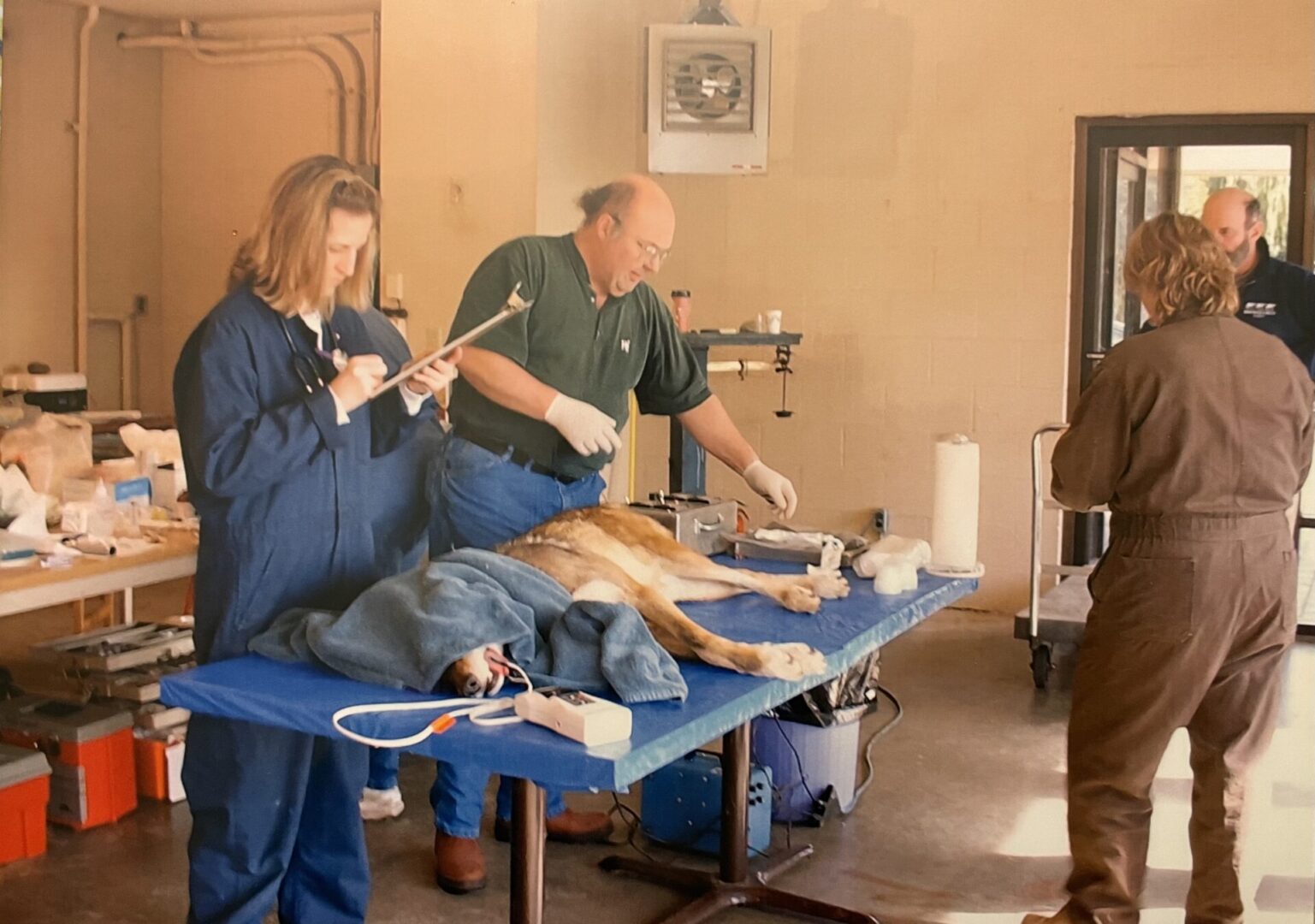
Establishing ICSB
Prof. Platz returned to Oregon in 1983 to establish the main office of the International Canine Semen Bank (ICSB). Utilizing the reproductive techniques, media, and equipment he utilized in the academic setting, Prof. Platz was able to put his knowledge to good use by providing successful systems for dog breeders. ICSB now has an ongoing program to establish licensed centers in the US and around the world.
Additional Achievements
In addition to his contributions to the research field, Prof. Platz was the director of P-T electronics, which specialized in designing, manufacturing, and selling equipment for semen collection in domestic, wild, and endangered animals. This machinery is still in use at many zoos, laboratories, and government endangered species programs worldwide.
He also served as a consultant in projects in projects dealing with animal reproduction at Texas A&M University, Department of Interior, US Fish and Wildlife Service, the Smithsonian, and several zoos and universities in the US and overseas.
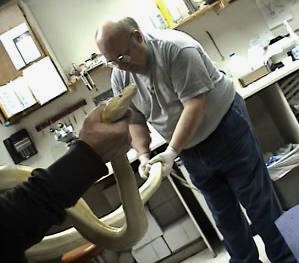
We are proud to be working with such an amazing group and hope you have a chance to meet our team soon.
Thank you from the ICSB Main Office Team!
